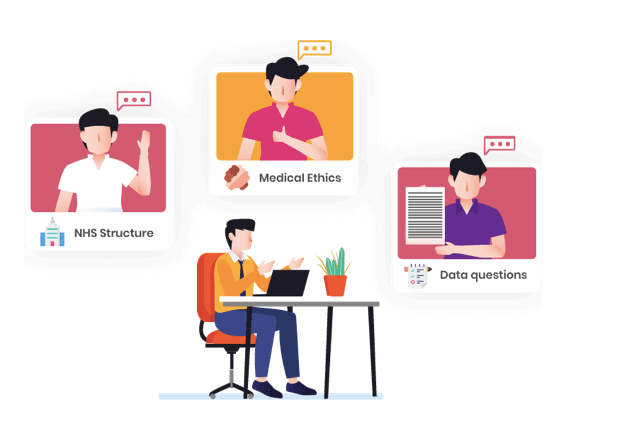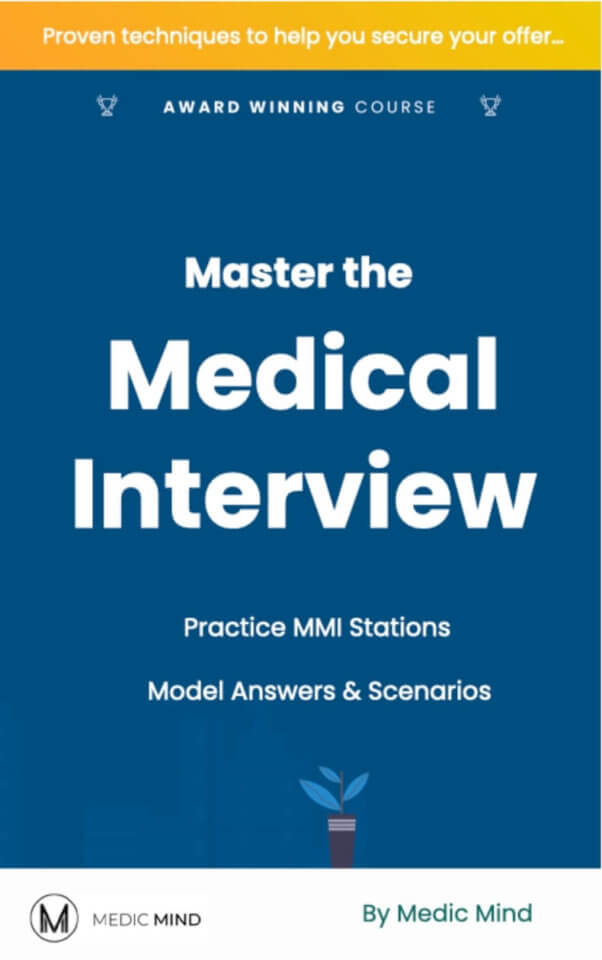Loading...

Medicine Interview: NHS Hot Topics - Confidentiality
As medical professionals, we are bound by a code of ethics that includes confidentiality as a fundamental principle of the patient-doctor relationship. Confidentiality is critical in building trust and maintaining privacy between patients and healthcare professionals. However, there may be situations where breaching confidentiality becomes necessary.
In this article, we will discuss the importance of confidentiality, common questions about confidentiality that may arise in medical interviews, when it is acceptable to breach confidentiality, and how to answer questions involving confidentiality.
Importance of Confidentiality:
Confidentiality is essential in medical practice because it allows patients to be honest with their doctors without fear of being judged or stigmatised. Patients may not disclose certain information if they fear it will be shared with others, which can negatively impact their diagnosis and treatment. Confidentiality is also crucial in protecting patients’ privacy, particularly regarding sensitive medical issues such as mental health, sexual health, or substance abuse.

Common Questions About Confidentiality:
In medical interviews, questions about confidentiality may arise to assess a candidate’s understanding of the topic. Some common questions include:
- What is the role of confidentiality in the patient-doctor relationship?
- Can you share patient information with family members or friends?
- When is it acceptable to breach confidentiality?
- How would you handle a situation where a patient’s confidentiality is breached unintentionally?
- How do you maintain confidentiality in the age of electronic medical records?
When is it Acceptable to Breach Confidentiality?
Although confidentiality is essential, there are times when it is acceptable to breach it. These situations are rare and must be carefully considered, and there must be a compelling reason to do so. Some examples include:
- When there is a legal obligation to do so, such as reporting suspected child abuse or neglect.
- When there is a risk of harm to the patient or others, such as if a patient discloses a plan to harm themselves or someone else.
- When public health is at risk, such as reporting a communicable disease or outbreak.
- When there is a court order to release information.
How to Answer Questions Involving Confidentiality:
When answering questions about confidentiality in medical interviews, it is essential to demonstrate an understanding of the importance of confidentiality while also acknowledging the rare situations where breaching it may be necessary. It is crucial to show sensitivity and empathy towards patients while upholding ethical and legal obligations.
Here are some tips on how to answer questions involving confidentiality:
- Define confidentiality and explain its importance in the patient-doctor relationship.
- Discuss the rare situations where it may be acceptable to breach confidentiality.
- Emphasise the need to balance the patient’s right to privacy with legal and ethical obligations.
- Demonstrate an understanding of the potential consequences of breaching confidentiality, including loss of trust and legal action.
- Highlight the importance of maintaining confidentiality in the age of electronic medical records and discuss strategies for doing so.
How can this be used in Medical School Interviews?
Confidentiality is a critical topic in medical school interviews as it demonstrates a candidate’s understanding of the ethical principles of medical practice. When preparing for medical school interviews, it is important to familiarise oneself with the principles of confidentiality and to practice answering questions related to the topic. Medic Mind’s Medical Interview book includes hundreds of questions and example answers to help you prepare for your interview.
Candidates can demonstrate their understanding by discussing the importance of confidentiality, the rare situations where it may be acceptable to breach it, and strategies for maintaining confidentiality in the digital age. By demonstrating an understanding of confidentiality, candidates can convey their commitment to ethical and compassionate medical practice.
Confidentiality is an essential aspect of the patient-doctor relationship that protects patients’ privacy, promotes trust, and facilitates open communication. Medical professionals must be familiar with the principles of confidentiality, understand when it is acceptable to breach it, and have strategies in place to maintain confidentiality in the digital age.
By demonstrating an understanding of confidentiality in medical school interviews, candidates can convey their commitment to ethical and compassionate medical practice, which is essential for success in the medical profession.
FAQs
→ Can I ever breach confidentiality to protect myself from legal action?
No, as a healthcare professional, you have a legal and ethical obligation to maintain confidentiality even if it means putting yourself at risk of legal action. Breaching confidentiality for personal reasons can result in the loss of trust from your patients, damage to your professional reputation, and legal consequences.
→ Can I share patient information with other healthcare professionals involved in a patient’s care?
Yes, sharing patient information with other healthcare professionals involved in a patient’s care is acceptable as long as it is done on a need-to-know basis and only includes relevant information. Sharing information with other healthcare professionals can ensure that patients receive the best possible care and can help prevent medical errors.
→ How can I ensure confidentiality when using electronic medical records?
Maintaining confidentiality when using electronic medical records involves taking steps to protect patient information from unauthorized access or disclosure. Some strategies for maintaining confidentiality include using strong passwords, limiting access to patient information, encrypting data, and being mindful of who is present when discussing patient information. It is also important to follow institutional policies and procedures related to electronic medical records.
→ What if I cannot answer a question about confidentiality in a medical interview?
If you are asked a question about confidentiality in a medical interview and you are not sure how to answer, it’s important to remain calm and honest. You can say something like, “I’m not entirely sure about that, but I would be happy to look into it and get back to you.”
This shows you are open to learning and willing to admit when you don’t know something. After the interview, take some time to research the concept of confidentiality and prepare better for future interviews.
→ Where can I do more research about confidentiality for my medical interview?
To do more research about confidentiality for your medical interview, you can start by reviewing your medical ethics textbooks or coursework. You can also explore online medical journals and publications, such as the Journal of Medical Ethics and the American Medical Association Journal of Ethics, which cover a wide range of ethical topics in healthcare.
Additionally, speaking with colleagues or mentors who have experience with confidentiality in medical practice can provide valuable insights and perspectives. Finally, attending medical conferences or workshops that focus on medical ethics can help you stay up-to-date on current discussions and debates around confidentiality and other ethical principles.
Related links
Get instant feedback on responses to questions to hone your answers.
Gain access to 100+ tutorials, practice stations and online content including university-specific information.
20 station circuit where you'll gain insight and practice for your medical interview.





Was this article helpful?
Still got a question? Leave a comment
Leave a comment